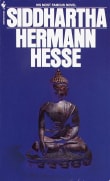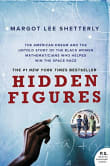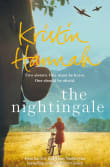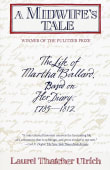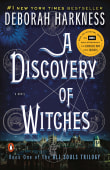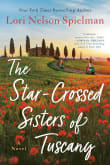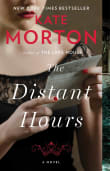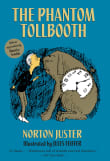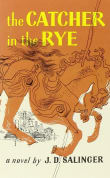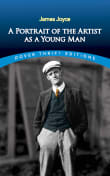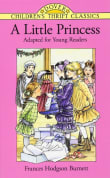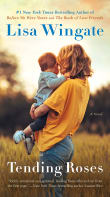Little Women
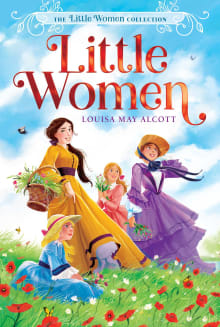
Book description
Louisa May Alcott shares the innocence of girlhood in this classic coming of age story about four sisters-Meg, Jo, Beth, and Amy.
In picturesque nineteenth-century New England, tomboyish Jo, beautiful Meg, fragile Beth, and romantic Amy are responsible for keeping a home while their father is off to war. At…
Why read it?
19 authors picked Little Women as one of their favorite books. Why do they recommend it?

I was twelve when I fell in love with the old fashioned allure of the 19th century that I discovered in this book, which provided an early template (1868), for generations of books to follow that break down female stereotypes.
I identified with different aspects of all four March daughters, but most powerfully with Jo, the writer, who secretively pursues publication, prevails as a successful author, and no doubt provided a template for my own development as a writer.
And Marmee’s nurturing model of mothering was especially consoling to me as I grew up entangled in a difficult mother/daughter relationship,…
From Elizabeth's list on young girls prevailing against adversity.

I can’t leave this book off the list! When I first read it as a teenager, I was so focused on the engrossing story of the four sisters that the fact it took place during the Civil War barely registered.
Upon rereading the novel as an adult, I can appreciate how the war profoundly affects the sisters’ lives through the absence of their father (and, for a time, their mother) and by creating an ever-present sense of uncertainty. I love the characterization and wisdom of this novel.
From Kinley's list on American Civil War great female leads.

I first read this book as a teenager but didn’t appreciate Louisa May Alcott’s gift for storytelling until years later, when I reread it.
This time, I didn’t want the story to end because I’d fallen in love with the four March sisters Jo, Beth, Meg, and Amy. I laughed. I cried. Though fictional characters and separated by hundreds of years, the March sisters felt real to me, and I was a little bereft at the end of their story.
Along with universal themes of love, betrayal, anger, lust, revenge, and death, Little Women deftly portrays each sister’s struggles and…
From Lisa's list on books that capture sisterly love, envy, and embracing the unknown.
If you love Little Women...

The much-loved American tale Little Women tells the story of four sisters in Civil War era Concord, Massachusetts, and their quests for love and happiness.
Based on author Louisa May Alcott herself, the character of Jo March, the second daughter, is headstrong, independent, and loves to read and write. Many young female readers have taken Jo as a role model because she speaks her mind and pursues her goals—writing first among them.
Much like my own character Victoria Swann, writing helps Jo forge her independence and it becomes clear as the story progresses that it’s her voice telling the family’s…
From Virginia's list on a woman writer finding her own voice.

Marmee is a beacon of inspiration whose beauty and grace powers Jo and her sisters through poverty and hard times in 19th-century Massachusetts.
In Alcott’s world moms are central idealized figures: caregivers, role models, teachers–as such they are the glue that holds a family together. No one ever gets pissed at Marmee or tells her her questions are intrusive or complains that she’s “being annoying.”
Was Jo’s idealization a product of the times (people didn’t question authority figures)? Were the novel’s female relationships sugarcoated for publication? Did Alcott have a blindspot in this area? I’ll never know. And that doesn’t…
From Stephanie's list on mom culture.

Many of us remember when we first read Little Women, the classic wartime story of four sisters raised by their wise Marmee while their absent father ministers to Civil War soldiers.
Everyone knows of Little Women, but how recently have you read it? Adults read differently than children or teens, and this annotated version gives us the specifics of the time and the factual background of Louisa May Alcott’s struggle to write and to find a publisher. Her mother’s fortitude had much to do with “Jo’s” strength and persistence.
Context comes alive, thanks to the additions to the text, with…
From Jayne's list on mothers and daughters and the trauma of war.

Perhaps Jo March was the first girl many of us encountered in literature who grew up intent on the work of becoming a writer.
I loved her sisters, her mother, and their adventures in New England during their father’s absence in the Civil War, but my eyes were mostly on Jo. Not only was she smart, lively, bold, and adventurous, she just didn’t stop writing.
She wrote her way through loneliness and rejection. She persevered, and showed me what it would take.
From Elizabeth's list on coming of age stories with intrepid heroines.

As one of four sisters, I fell in love with the March sisters instantly. However, even though I was the eldest of my own sisters, I identified most with Jo—the rebel writer. A sister herself, Louisa May Alcott understands that sisters are complex. We may fight, disagree, get endlessly frustrated by our differences…but we are sisters and we stand together when it counts.
As a budding writer, I definitely felt misunderstood by my own family. I knew they always had my back, even if I would rather read a book than swim, play tennis, or throw a softball. The March…
From Kelly's list on celebrating sisterhood through time.

Little Women is possibly the first sister book most of us read. Beautifully characterized, each sister is distinct, and while the March family is very much in the world, it is also very much them against the world. The sisters always pull together in the end, even when they disagree. Even when Amy burns Jo's book. Though as a writer, I will never forgive her for that, and also as a writer, that was a huge red flag to Amy’s character which I think should have been explored more deeply.
From Karen's list on complicated sister relationships.

Little Women published in 1868 two years before Charles Dickens died was the first novel I read where one of the characters was a writer. Alcott makes Jo March brash and opinionated which is not the usual way writers are portrayed. But Alcott also makes her freedom-loving and this endears the reader to her though sometimes her behavior and the reasons for what she does can baffle. The cool thing about Little Women is that it shows how a writer stands out and how they can change the world around them. Jo March becomes famous and successful and just again…
From Richard's list on writers and how being a writer changes their lives.
Want books like Little Women?
Our community of 12,000+ authors has personally recommended 100 books like Little Women.


